Charlies-day-off - Wannabe Studyblr


More Posts from Charlies-day-off and Others
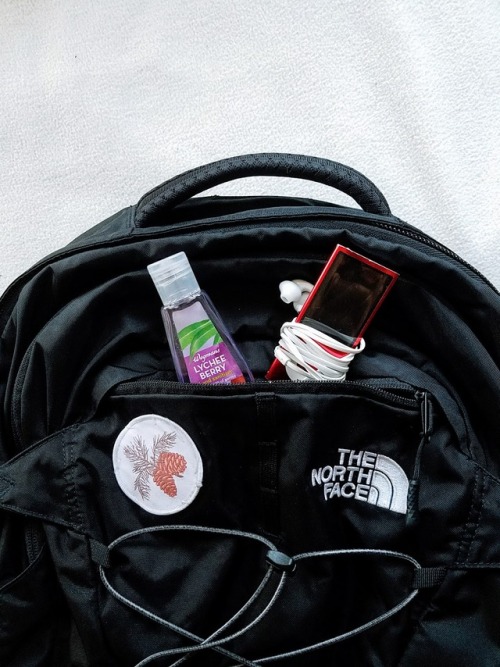

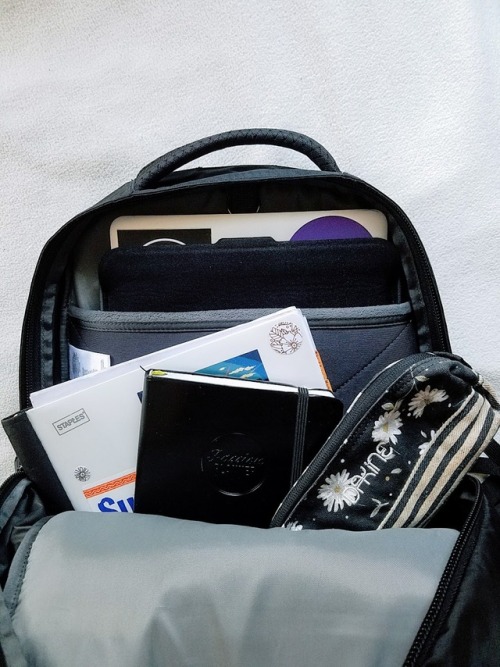
WHAT’S IN MY BACKPACK: SOPHOMORE YEAR OF COLLEGE EDITION
Last time I did a What’s In My Backpack I was a senior in high school. Time for an update!
Since starting college, I’ve learned to really skim down the things I carry with me, since I do a lot of walking every day (usually around 45min). I pack only the necessary school supplies, and keep a lot of stuff on my laptop so that I can carry less paper. However, things to get through the day/deal with emergencies are always necessary. **All links are Amazon Affiliate links, but all products are things I use and love (obviously, since they’re in my backpack!)**
My backpack is the North Face Women’s Borealis (newer version). It offers great support and has a ton of little pockets, which I love. Patch sewn on by me :)
Details under the cut!
Weiterlesen


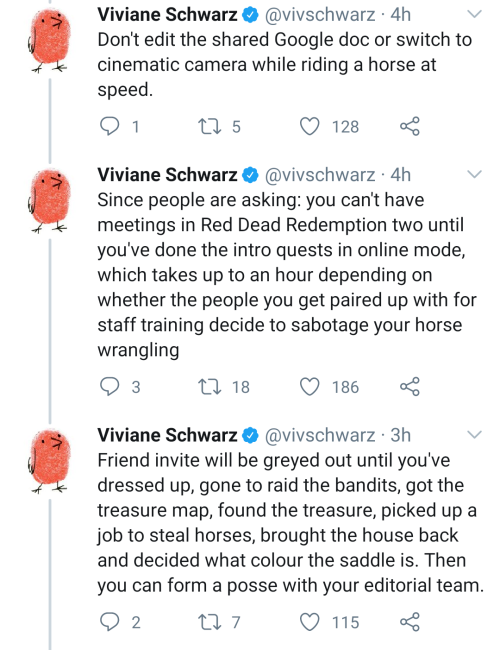
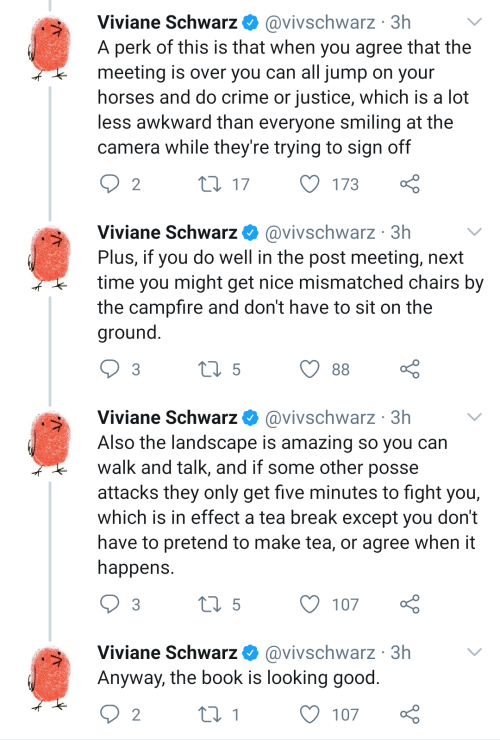
HOW DO I STUDY FOR _____________
So I think this might be the question I get asked the MOST often. People are always asking me how do I study for this or that class. So I thought I would just make a master post I could link you all to. :)
All classes
Watch my video on how to study. This applies to almost everything you have to study.
See below for additions to doing everything listed in that video.
Math
Do problems. Do all the problems. Do them again.
Do all the problems in your book.
Get another book and repeat step 2
Trust me 99.9% of all math classes is pattern recognition. If you can learn how to solve the problem you can ace any set of variables they throw at you.
Physics
See math–because physics is JUST applied math. You have to learn how to read the questions and pull out the information you need–the only way to do that is to do dozens of questions!
Micro Bio/ID
Flow charts–break things up by group to understand them. You have to group things to remember what’s gram positive or gram negative
Don’t blow off the actual micro part of micro. If you understand the virulence factors you’re more likely to understand the sx/tx
I had to use a lot of silly sayings to remember all the little pieces of micro. So I would remind myself about the diseases of haemophilus influenzae by saying haEMOPhilus (epiglotitus, meningitis, otitis media, pnuemonia). It was silly but it worked for me.
O Chem
Do all the problems. Do them again.
Get another book and repeat step 1
Flashcard the reactions you don’t understand–put the reactants on one side and the products on the back. Practice these backward and forward.
Draw out every step of reactions you don’t understand
Circle your electrons or mark whatever it is you lose track of
Count–count where everything went at the end to make sure you didn’t screw up.
Categorize. Do all members of this group react this way?? It’s easier to learn the rules and the exceptions than force memorize every individual compound’s reaction.
Gen Chem
See math
Understand real world examples. I related all of the stuff about heat to a cup of coffee. It worked for me
Talk through it! I had to read chemistry out loud or try to repeat it out loud in my own words to have any idea what was going on.
YouTube videos are absolutely perfect for gen chem!! (There’s even a whole CrashCourse series on Gen Chem that’s appropriate especially for high school level chem).
General Biology–Genetics/Immunology/Cell Biologyetc
You really need to watch my video
Cross relate–you have to integrate all your biology together to keep all that information in your head.
Flashcard only the stuff that can’t be understood. (Like cell markers, etc)
Charts! Biology is all about categorization and understanding the similarities between different groups of things. If you can simply remember the characteristics of a group it’s easy to know everything you need to about all the members of that group.
Pathology
Pathoma
Look at the pictures until you feel sick.
Make flashcards of the pictures so you can at least do immediate identification of what you’re looking at even if you don’t know exactly what the pathology is.
Integrate! How does the physiology relate to exactly what is going on with the pathology? How does the pathology predict treatment?
Learn some latin and greek root words. Even if you have no idea what the word means you might be able to figure it out from there. :) I’ve gotten more than one question right by just figuring out what the word meant.
Pharmacology
Understand the mechanism of the drug–it will really predict how it is used or what its toxicities are for
Flashcard the bare minimum or anything bizarre you can’t remember any other way.
Figure out the similarities in the names. If it sounds the same, it probably belongs in the same class.
Don’t learn in isolation. It’s hard to study pharmacology on its own–instead study it integrated with physiology and pathology whenever possible for the best understanding.
Study as case studies!! What diuretics would you give to a patient with CHF? With ESLD?
Biochemistry
Charts–get poster boards or tape together a ton of sheets of paper and try to write out every pathway you can to see how it all is integrated.
Always track the flow of energy!! Where is your NAD/ATP/etc?
Group pathways by the “point”. Are you destroying carbohydrates or building fats? How does this compare to other pathways that do the same thing?
Try to rewrite the pathways from memory then see what you missed.
Anatomy
Spend a bunch of time with the specimens if you have access to them.
DRAW even if you suck at drawing
Learn the clinical correlations–why do you care
Thing about everything in relationship to one another!
Do questions!! Grey’s has a student question book I recommend.
I’ll probably add more to this list as I go and as more of you ask for specific subject advice, but here you go!!
When in doubt, always ask yourself “how would this be asked on a test?”. If you could write a test question about it, you should definitely know it!
And always remember that you should study for understanding and not just for a grade–always be learning and not memorizing. It’s more important you understand the material than you get the A!!
Happy studying!


merry trapmas.
all ur faVe christmas songs : remixed!
( listen ) + ( more )
Words to keep inside your pocket:
Quiescent - a quiet, soft-spoken soul.
Chimerical - merely imaginary; fanciful.
Susurrus - a whispering or rustling sound.
Raconteur - one who excels in story-telling.
Clinquant - glittering; tinsel-like.
Aubade - a song greeting the dawn.
Ephemeral - lasting a very short time.
Sempiternal - everlasting; eternal.
Euphonious - pleasing; sweet in sound.
Billet-doux - a love letter.
Redamancy - act of loving in return.




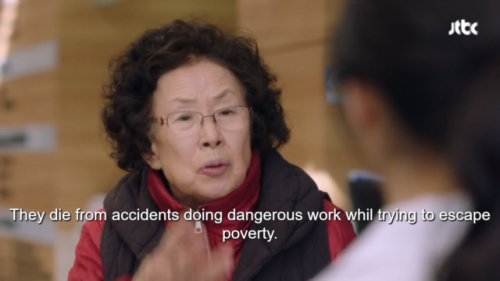


Granny: No printer, just fax!

How to Deal with Study Burnout

As students in this day and age, it’s quite common for us to juggle rigorous academic responsibilities and overwhelming extracurricular activities. As a result, we might feel burnt out. But what exactly is burnout?
Burnout is when you feel physically and mentally exhausted as a result of constantly lacking the energy required to fulfill the demands of your studying.
Burnout can be broken down into three parts:
Exhaustion is what causes you to feel tired all the time and unable to concentrate. You could also get sick or have trouble sleeping.
Cynicism or depersonalization is when you feel disconnected from those around you, e.g. your friends and family.
Inefficacy is a decrease in productivity, efficiency, or quality of your work.
How do you know if you have burnout?
Symptoms may vary, but they include:
Being unable to absorb new information
Intellectual exhaustion
Decreasing academic performance and productivity
Feeling like you need to prove yourself
Making yourself work even more, even though you’re exhausted or being unwilling to study further
Neglecting your needs
Long term fatigue
Showing disinterest in things you normally enjoy, e.g. hobbies or friends
Denying that something’s wrong with you (may manifest in the form of aggression)
Avoiding social interaction
Feeling empty and depressed
What can I do to fix it?
Here are some short term solutions for dealing with burnout.

1. Take a power nap Power naps are life changing. They help you recharge your energy and get you ready to start working again. They also improve learning, memory, creativity, alertness, and mood. I would recommend napping for 30 minutes at most, because anything more will lead to a longer sleep session.
Optional: drink coffee before your nap - something that takes a short while to consume like a shot of espresso - so that you’ll feel alert and revitalized afterwards!
2. Take a shower A cold one will wake you up, but a warm one will calm you down. I suggest starting with warm water, then ending with cold water.
3. Exercise Whether it’s playing soccer or doing yoga, the important thing is to get moving! Exercise releases endorphins or happy hormones that help you combat stress.
4. Run a quick errand This will help take your mind off things while also getting something done! You’ll also end up walking, which is technically a form of exercise.
5. Call or visit a friend Sometimes what we’re lacking is social interaction, and hanging out with a friend definitely helps. Whether it’s providing you with a distraction or giving emotional support, your friends are always there to help you. Plus, science has shown that being with friends reduces your cortisol (stress hormone) levels.
6. Eat a snack Preferably a healthy one. Eat something with proteins, vitamins, and fibers to boost your mood. Here’s a list of mood boosting foods.
7. Surf the web This requires A TON of discipline, but it’s definitely a game changer. Surfing the web is one of the most relaxing things you could do. I personally look for a good laugh during my study breaks, so I’d watch a comedy or scroll through memes to get those happy hormones up and running.
8. Do an activity you find interesting, e.g. a hobby We all need happiness in our lives, and our hobbies are perhaps the best way to find that joy. You could sit down with a page turning adventure, or go outside and shoot hoops, or listen to a podcast, or even bullet journal, as long as you’re having a good time.
9. Listen to music Music is one of the ways we gain energy, so I always make time for it during the day. However, you should choose the right music, because not all the music you love is going to make you feel energized. For me, it’s pop punk with hard hitting beats, thundering guitars, and really upbeat, enthusiastic vocals. Some of you might be energized by mellow music with dreamy vocals that make you feel like you’re floating in the clouds. If you choose the wrong music, you might just end up feeling sluggish and drained.
10. Get some fresh air Your brain needs 20% of the oxygen in your body. Fresh air brings more oxygen to your brain so that you can think more clearly, feel less tired, and concentrate more easily.
How do I make sure I don’t get it in the future?
Avoiding study burnout in the long term has a lot to do with our study habits - as well as our daily habits. We need to make sure that our bodies and minds receive the things they need, and that we aren’t overworking them.

1. Study a little at a time Break up your notes into smaller, more easily digestible pieces and learn a little at a time. This way, you’re not overwhelming your brain, and you have time to let that new knowledge settle in.
2. Time management Having a good study schedule is crucial in preventing burnout. You don’t want to force yourself to work at your slow hours. Aside from that, you definitely shouldn’t leave things until the last minute, and sticking to a schdule will help you pace yourself. Here’s a post I wrote on How to Make an Efficient Revision Schedule and How to Beat Procrastination.
3. Get enough rest I cannot stress enough that sleep is so important for you. It improves your cognitive functioning and also enhances your mood, making it less likely that you’ll get burnt out. Make sure to take power naps, too, if you feel like you need them.
You also really shouldn’t pull all-nighters. Sleep is also involved in cementing memories in your brain, so if you study a little before you sleep, you’re bound to remember more than if you studied a chapter during an all nighter.
Having trouble sleeping? Here’s a post I made about my night routine and how to get better sleep.
4. Cycle your study environments Your body and mind are bound to get tired from being in the same location for prolonged periods of time. The best way to fix that is to study in different places: at your desk, your backyard, the dining table, a cafe, a friend’s house, the library, etc.You should find a frequency that works for you. I like to switch it up every 2-3 days; some people change locations every week.
5. Eat well As I’ve mentioned before, healthy foods with protein, vitamins, and fiber greatly improve your mood and your physical health. Proper nutrition will give your brain the power it needs to push through. Also make sure not to skip meals; honestly you’ll just end up feeling terrible afterwards.
6. Take frequent breaks Let’s face it, we’re human, we’re bound to get tired from studying for a long time. Taking breaks enables our brains to digest the information we just learned in a pace that works for it. Breaks also help us focus on something other than studying, so that when we do get back to it, we’ll be ready to digest even more information.
7. Set realistic study goals You’re gonna memorize all 500 pages of your biology textbook in one day? Good luck with that. Some of you might be compulsive studiers, but this kind of habit isn’t very good for your brain or your physical health. Studies have shown that excess studying can lead to lower productivity, fatigue, and - you guessed it - burnout. In the end, this will result in lower academic performance, perhaps even in the long run. So instead of trying to study so much in one sitting or one day, break up your material into chunks.
8. Maintain your social life Wherever you lie on the introvert-extrovert spectrum, everyone needs social interaction once in a while. It keeps you sane and healthy. Go out with your friends, have a sleepover, or maybe even a study date.
9. Start the day right What we do in the morning can significantly affect our mood for the rest of the day. Sometimes we don’t even feel like getting up in the morning, or doing anything that day. One thing you should do is create a morning routine you enjoy to jumpstart your day. Here are 8 Morning Habits for Productivity.
10. Think positive When we’re feeling burnt out, it’s hard to not think negatively about everything. In reality, that just makes our condition worse. So think positively! Start small, like congratulating yourself for getting out of bed today, and then work your way up to bigger accomplishments, like finishing 2 chapters of your textbook.
11. Keep a stress diary This is kind of a new concept for me, but it’s really great. How it works is that each day, you would write down all the things that made you stressed and how they made you stressed. This will help you identify the things you’re doing that’s causing your burnout, e.g.
Too long study hours? take regular breaks
Too much time in the same place? cycle your study environment
Not eating properly? set aside time to eat healthy meals at least 2 times a day
Not doing the things you love? schedule in time for that, e.g. during your long breaks
Not getting enough human interaction? make a study group
Too much negative thinking? adopt a positive mindset (you can always start small)
Not getting enough sleep? fix your sleep schedule
And that’s all I have for you guys this time. Hope these tips will help you manage your stress and study burnout whenever you have them. And if you have any questions, don’t hesitate to drop an ask!
P.S. if any of you want to see the images in this post in better quality, click here (link to google drive)
im a simple gal i see a pygmy animal i lose my Fucking mind
The “I will do it because you said I couldn’t” club
Sagittarius, Pisces, Capricorn, Gemini, Scorpio, Aries
-
 webcamgirl reblogged this · 7 months ago
webcamgirl reblogged this · 7 months ago -
 natyscocco reblogged this · 9 months ago
natyscocco reblogged this · 9 months ago -
 natyscocco liked this · 9 months ago
natyscocco liked this · 9 months ago -
 sweetcherrystarlet reblogged this · 11 months ago
sweetcherrystarlet reblogged this · 11 months ago -
 xxyy17 liked this · 1 year ago
xxyy17 liked this · 1 year ago -
 stumbleina reblogged this · 2 years ago
stumbleina reblogged this · 2 years ago -
 holy-darling liked this · 2 years ago
holy-darling liked this · 2 years ago -
 barcerona liked this · 2 years ago
barcerona liked this · 2 years ago -
 snow-bomb liked this · 2 years ago
snow-bomb liked this · 2 years ago -
 vic-doria liked this · 2 years ago
vic-doria liked this · 2 years ago -
 king-bussy reblogged this · 2 years ago
king-bussy reblogged this · 2 years ago -
 balsamic--vinegar liked this · 2 years ago
balsamic--vinegar liked this · 2 years ago -
 thecuteandsilly liked this · 2 years ago
thecuteandsilly liked this · 2 years ago -
 ladyofallcats reblogged this · 2 years ago
ladyofallcats reblogged this · 2 years ago -
 smegma-scott reblogged this · 2 years ago
smegma-scott reblogged this · 2 years ago -
 smegma-scott liked this · 2 years ago
smegma-scott liked this · 2 years ago -
 getbacktofandomlife reblogged this · 2 years ago
getbacktofandomlife reblogged this · 2 years ago -
 marjedew liked this · 3 years ago
marjedew liked this · 3 years ago -
 twolips-sinkships reblogged this · 3 years ago
twolips-sinkships reblogged this · 3 years ago -
 deffooooos reblogged this · 3 years ago
deffooooos reblogged this · 3 years ago -
 douxcherry reblogged this · 3 years ago
douxcherry reblogged this · 3 years ago -
 douxcherry liked this · 3 years ago
douxcherry liked this · 3 years ago -
 joshuaism liked this · 3 years ago
joshuaism liked this · 3 years ago -
 gothcoquetteprincess liked this · 4 years ago
gothcoquetteprincess liked this · 4 years ago -
 tailsbeth reblogged this · 4 years ago
tailsbeth reblogged this · 4 years ago -
 illbiteyourfaceoff reblogged this · 4 years ago
illbiteyourfaceoff reblogged this · 4 years ago -
 elemmirekirk5031 liked this · 4 years ago
elemmirekirk5031 liked this · 4 years ago -
 physceinmynikes liked this · 4 years ago
physceinmynikes liked this · 4 years ago -
 marginannotates reblogged this · 5 years ago
marginannotates reblogged this · 5 years ago -
 angelicalidade reblogged this · 5 years ago
angelicalidade reblogged this · 5 years ago -
 angelicalidade liked this · 5 years ago
angelicalidade liked this · 5 years ago -
 allisonjunes liked this · 5 years ago
allisonjunes liked this · 5 years ago -
 gigileins liked this · 5 years ago
gigileins liked this · 5 years ago -
 itzybitzyme liked this · 5 years ago
itzybitzyme liked this · 5 years ago

Waddup my name is Charlie, im 21, and i never fucking learned how to study.
241 posts